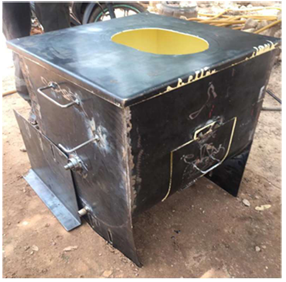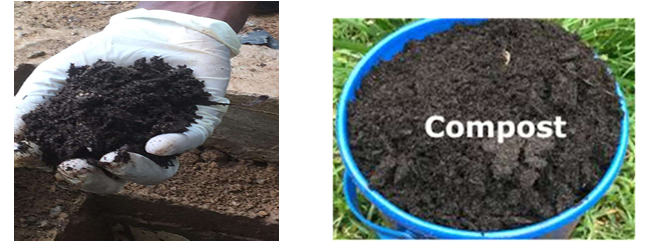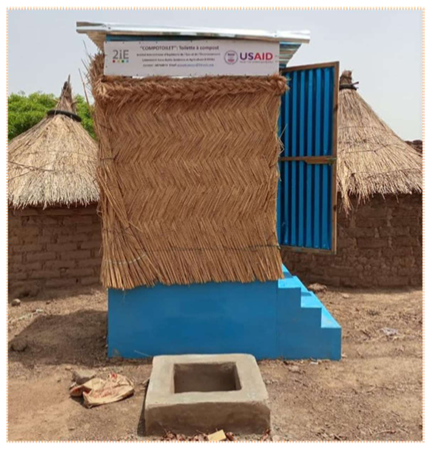Introduction
Access to proper sanitation and a clean environment is more than a health concern; it is a pressing issue that demands immediate attention. The United Nations recognizes access to clean water, sanitation, and health (WASH) as a human right and a crucial aspect of the Sustainable Development Goals (SDGs). However, with only about five years remaining, the achievement of this all-important SDG target seems unattainable, mainly owing to bad environmental practices such as open defecation. Open defecation – the act of disposing of human waste (called excreta) in open places rather than using a proper toilet facility – is a pervasive issue, particularly in rural Africa. In Burkina Faso, for instance, despite a general decline in open defecation (from 71.42% in 2000 to 47.98% in 2015), a staggering 65% of rural families still practiced open defecation as of 2023, underscoring the urgent need for action. The consequences of open defecation are severe and include the spread of diseases such as cholera and diarrhea, environmental pollution, and the contamination of water sources, which collectively hinder community development and overall health improvement.
The 2iE’s Innovative Intervention
In addressing this environmental challenge latrine toilets have been identified as a cost-effective and potent solution for mitigating the incidence of open defecation and its associated mortality. However, according to UNICEF, the financial resources required to construct and maintain latrine toilets are beyond the reach of most rural areas. Currently, only 12% of rural inhabitants of Burkina Faso can afford and thus access a functioning latrine toilet. Consequently, the majority continue to practice open defecation, thereby endangering the health and safety of all, particularly vulnerable populations such as children, girls, and women. In a bid to deal with this issue and realize the vision of an open defecation free country, the Center of Excellence for Engineering, Water, and Environment (CEA-2iE), one of five World Bank-initiated centers of excellence in Burkina Faso, has intervened to change the narrative and bring some respite to the country. The 2iE’s approach to dealing with open defecation has been unique. It collect’s the human waste from the environment, adds value to it, and ensures it is properly managed, recycled and utilized, rather than discarded in a hazardous way or left unattended. In collaboration with partners – Joseph Ki-Zerbo University (UJKZ) and the Research Institute of Applied Sciences and Technologies (IRSAT), both in Burkina-Faso, the center has facilitated the implementation of an excreta collection and treatment system in two villages, Nougou and Boussouma, located in the commune of Koubri. This system includes a compost toilet and a sanitation pit.

The compost toilet, also known as a compotoilet, is an ecological dry toilet featuring a defecation cabin and a bioreactor. The defecation cabin serves as the toilet, collecting all excreta, while the bioreactor functions as a chamber that biologically converts organic matter into mineral matter. The resulting compost, a by-product of this process, is utilized by rural Burkinabe communities as organic fertilizer for their farms and family vegetable gardens, enhancing plant growth and increasing agricultural yield.
Acceptance/Impact of the Technology
A performance and acceptability evaluation of the toilet and a quality test of the compost by the institute have produced highly favorable results, marking the success and impact of this strategic and timely intervention, thanks to the center’s participatory approach to the process. This remarkable feat has thus inspired the center to take another bold stride and extend this initiative to other communities in need. With the broad aim of technology transfer, the center has developed a comprehensive guide to raise awareness among those communities and provide training on the technical and operational aspects of constructing and using this ecological and environmentally friendly technology. The guide also covers the conditions for reclaiming sanitation by-products from the compost toilet. By following the instructions in this training guide, the center aims to ensure efficient operation and proper maintenance of the technology, contributing to a sustainable environment. Scientific studies have shown that improved sanitation can reduce the transmission of enteric pathogens and intestinal parasites, decreasing morbidity and mortality, especially in children (Mara, 2017). CEA-2iE believes that ensuring a universal, sustainable, clean, and healthy environment is crucial across all development aspects, as outlined in the SDGs. In addition to the obvious benefits such as improved health and well-being offers to the population, the center is confident that availing this essential amenity of safe and clean toilets to them will also contribute to the accomplishment of other SDGs. For example, access to clean and safe toilets can enhance educational outcomes, aligning with SDG4, and reduce gender disparities, as targeted by SDG5. Besides, access to clean water and sanitation directly impacts economic growth (SDG 6).
The compost produced using 2iE’s innovative technology can further be used as organic fertilizer for gardening as well as agricultural, aquacultural, and horticultural activities to help increase farm yields, end hunger, achieve food security, and promote sustainable agriculture, in line with SDG2. By supporting rural Burkina Faso to eventually eradicate open defecation, better manage the excreta, and achieve food security, 2iE is also significantly contributing to achieving the objectives of the ‘Programme National d’Assainissement des Eaux Usées et Excreta (PN-AEUE) 2016-2030′, a national programme aimed at improving public health and environmental conditions through the implementation of effective wastewater and excreta management systems.

Conclusion
The challenge of open defecation in rural Africa, particularly in Burkina Faso, presents significant health and environmental risks that hinder sustainable development. The 2iE’s innovative approach, utilizing compost toilets and an excreta collection and treatment system, has demonstrated a practical and impactful solution. This intervention addresses immediate sanitation needs and contributes to broader goals such as agricultural productivity, food security, and public improvements.
Through strategic partnerships and community involvement, the 2iE has successfully implemented this technology in two villages, highlighting its potential for wider adoption. Producing compost from human waste offers an environmentally friendly fertilizer alternative, aligning with SDG2 on promoting sustainable agriculture. Moreover, the initiative supports several other SDGs, including enhancing educational attainment, reducing gender inequalities, and fostering economic growth.
As the 2iE extends its efforts to other communities, the promise of a cleaner, healthier, and more sustainable environment becomes increasingly attainable. By continuing to innovate and collaborate, the 2iE is transforming sanitation in Burkina Faso and paving the way for similar advancements across the continent. With ongoing support and adherence to best practices, eradicating open defecation and achieving universal access to adequate sanitation can move from a distant goal to a tangible reality.
